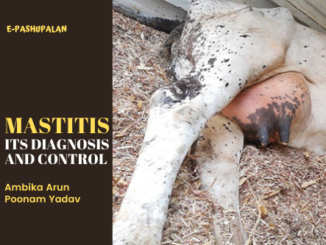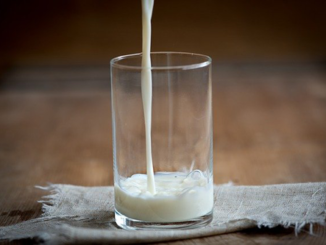Goat milk plays an important role in the nutrition and socioeconomic wellbeing of developing and underdeveloped countries, where it provides basic nutrition and subsistence to the rural people, which are the majority of their populations.
Goat milk shows great variability in biochemical composition, technological properties and bacteriological quality depending on genetic factors, environmental conditions, and goat farming practices. These factors are- pure breeding, crossing, age, birth season, birth type, duration of lactation and dry period, milking type, frequency and duration of milking, mating season, first pregnancy age, the survival rate of kids, nutrition and diseases. The nutritional and health benefits of goat milk are related to a number of medical problems of people, foremost being food allergies with cow milk protein. Goat milk is having better digestibility, alkalinity, buffering capacity and certain therapeutic values in medicine and human nutrition in comparison to cow or human milk. It is responsible for the production of several antimicrobial substances like bacteriocin and goat milk microbiota is also considered a good source of novel bacteriogenic Lactic acid bacteria (LAB) strains that can be exploited as an alternative for use as bio preservative in food. Goat milk is the best milk for infants because of the predominance of smaller fat globules causing faster lipase activity which results in easy digestibility of goat milk. Taurine is particularly high in goat milk, being 20-40 folds higher than cow milk which is involved in bile salt formation, osmoregulation, anti-oxidation, calcium transport and in the central nervous system.

Minerals content such as calcium, potassium, magnesium and chloride as well as vitamin A, B, C, D, thiamin and niacin content of goat milk is higher than of cow milk. Goat milk has higher amounts of conjugated linoleic acids playing important roles in immune stimulation, growth promotion, and disease prevention. The importance of goat milk as a functional food is related to its high digestibility and nutritional value, as well as its therapeutic and dietary characteristics. Goat milk is reported to form a finer curd than cow milk following acidification, which mimics the conditions in the stomach, suggesting it would be more readily digested.
Goat milk fat globules have a smaller size and high proportion of short- and medium-chain SFA, such as butyric, caproic, caprylic, and capric, and long-chain MUFA and PUFA, which are easily absorbed and more digestible than those from cow milk.
Goats’ milk contains bioactive components such as polyamines, nucleotide sugars, free amino acids, medium-chain fatty acids, polyunsaturated fatty acids and serum proteins.
Cow milk and goat milk do not differ significantly as far as the protein percentage is concerned and, in contrast to milk fat, the protein content in both species is less amenable to dietary manipulation. Goats’ milk has some particular properties that confer technological advantages in comparison to cow’s milk, such as a smaller size of fat globules, which provides a smoother texture in derived products, lower amounts of as1-casein, resulting in softer gel products, a higher water holding capacity and a lower viscosity.
Goat milk has both antibacterial as well as antiviral properties because the higher proportion of medium-chain fatty acids in goat milk is known to be anti-bacterial and antiviral. Caproic, caprylic, capric and other medium-chain fatty acids have been used for the treatment of malabsorption syndromes, coronary diseases, premature infant nutrition, cystic fibrosis and gallstone problems because of their unique metabolic ability to provide energy while at the same time lowering, inhibiting and dissolving cholesterol deposits.
Goat milk being alkaline is recommended for patients suffering from intestinal disorders like dyspepsia, peptic ulcer, allergic eczema, pyloric stenosis and is preferred over cow milk in jaundice, biliary disorders, acidosis and insomnia.






Be the first to comment